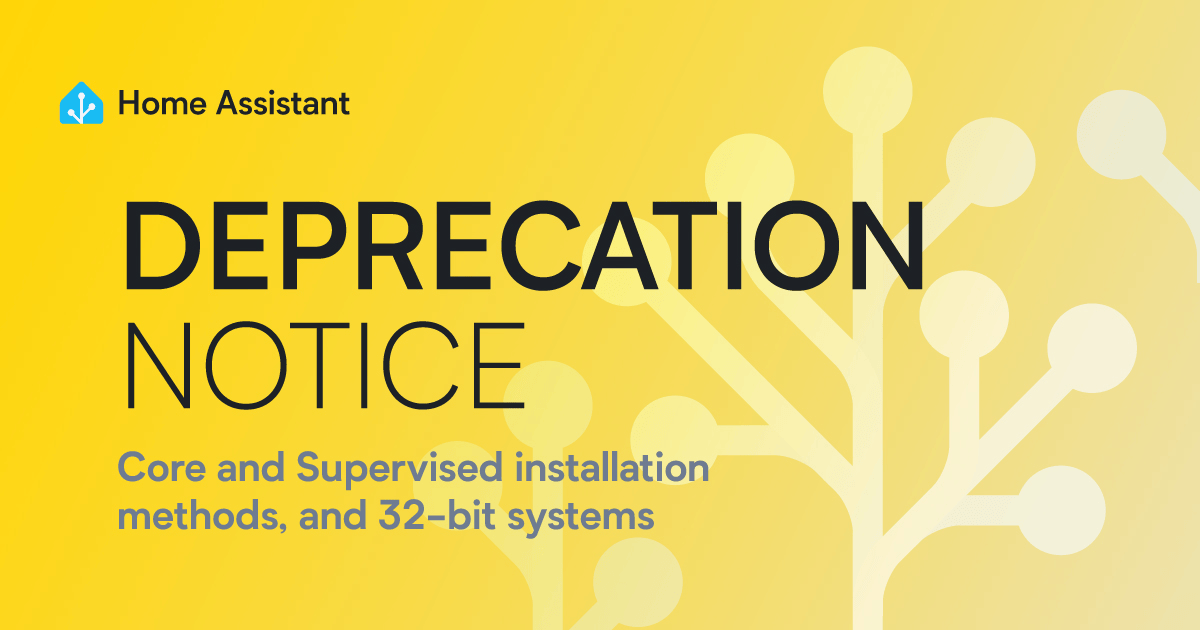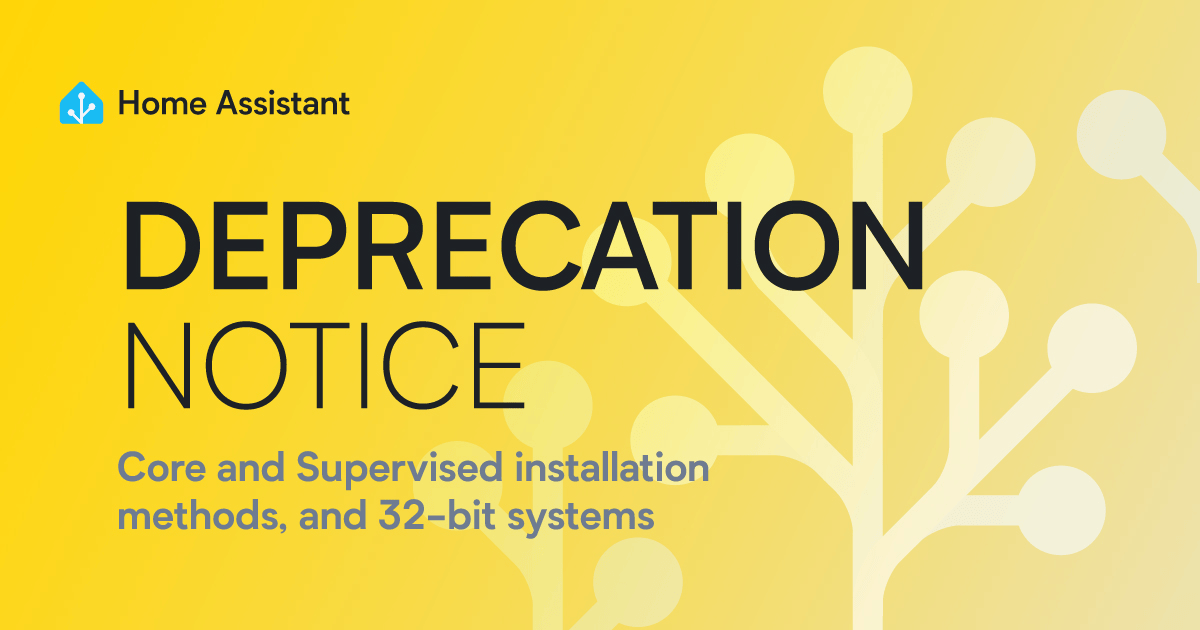Home Assistant - Deprecating Core and Supervised installation methods, and 32-bit systems
Home Assistant - Deprecating Core and Supervised installation methods, and 32-bit systems

www.home-assistant.io
Deprecating Core and Supervised installation methods, and 32-bit systems
